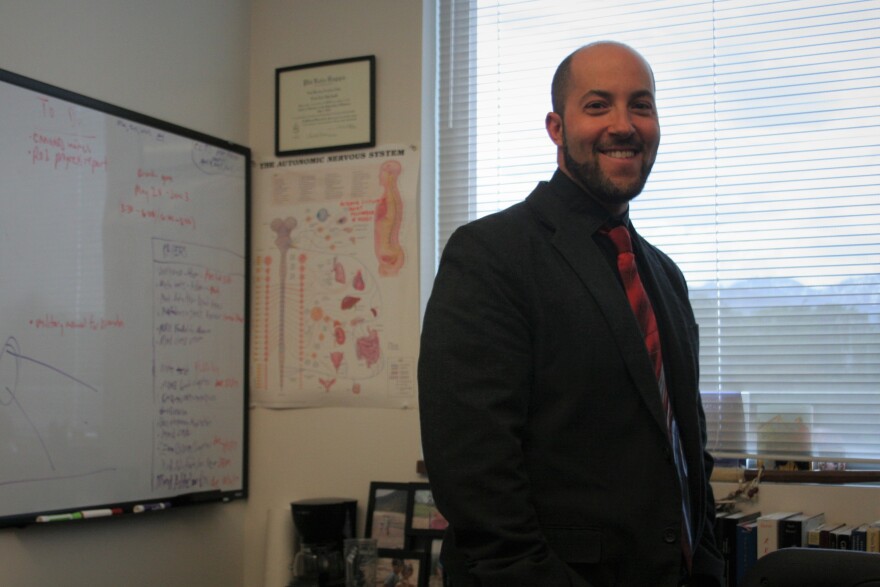Representatives from the University of Utah announced a new research center this week. It will focus on the academic study of mindfulness as a way to deal with a number of health issues including pain management.
Eric Garland is the associate dean for research at the University of Utah's College of Social Work. Starting this summer, Garland will be in charge of a new organization: the Center on Mindfulness and Integrative Health Intervention Development.
"Mindfulness is a form of mental training. It’s a form of strengthening the mind through practicing a particular kind of attention," Garland says.
Garland describes mindfulness therapy as focusing your attention inward to understand your thoughts and feelings, as well as stepping back and trying to understand yourself objectively, like a witness. The goals is to strengthen attention and self-awareness.
According to Garland, this therapy can be useful for people struggling with obesity or alcohol, or for those trying to quit smoking. He studies mindfulness in relation to pain management.
"Pain, specifically, is not only in the body, pain is in the brain," Garland says. "The treatment plan for many years has involved and really been centered on opioids because there really hasn’t been an alternative to opioids."
His hope is that these therapies will help provide that alternative to manage pain, to reduce reliance on dangerous drugs.
The new Center on Mindfulness will bring together researchers in psychiatry, neuroscience, family medicine, and physical therapy, among other fields. They’ll study the effectiveness of mindfulness therapies. The center was created with $17 million in grant funds from the U.S. Department of Defense, National Institutes of Health, and several other research institutes.

